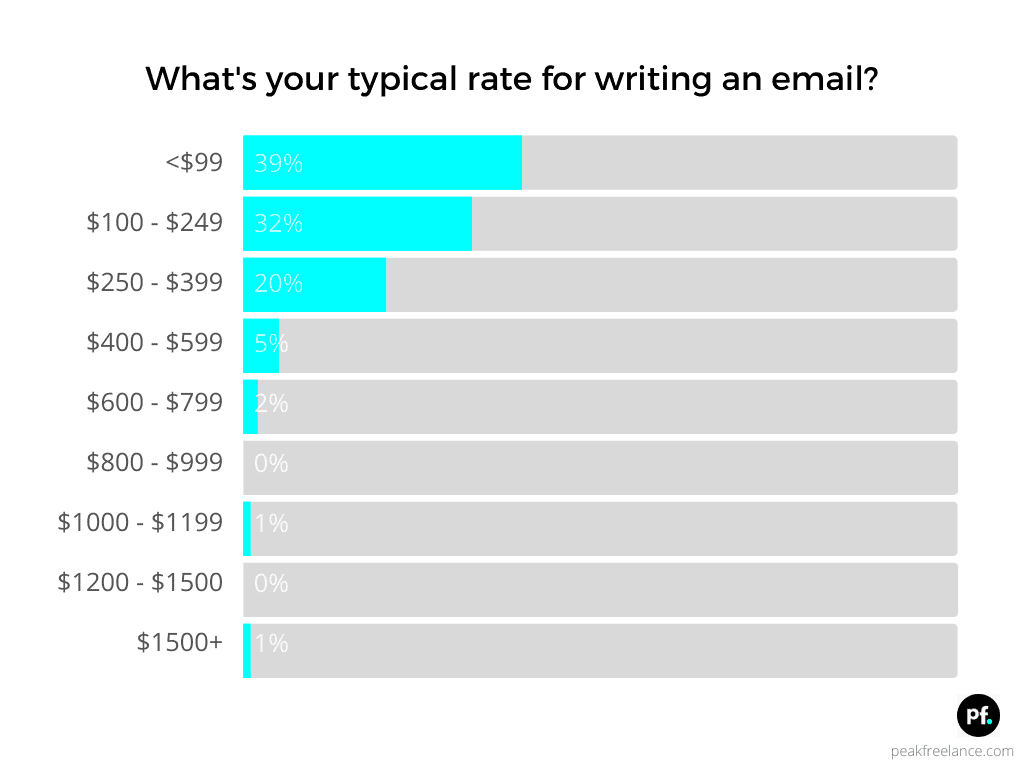Freelance writing is a popular career choice for many people today. It offers flexibility, the chance to work from anywhere, and the ability to choose projects that interest you. In essence, freelance writers create content for various clients, which can include articles, blog posts, website copy, and more. The beauty of freelance writing is that you can specialize in different areas, such as technology, health, or finance. As you start your journey, it’s essential to understand the landscape of freelance writing and how it can fit into your lifestyle.
Factors That Influence Freelance Writing Rates

Several factors can impact how much you can charge as a freelance writer. Understanding these elements will help you set competitive rates:
- Experience Level: More experienced writers typically command higher rates. They have developed their skills and can produce quality work more efficiently.
- Industry: Some industries pay more than others. For example, technical writing or medical writing often has higher rates due to the specialized knowledge required.
- Project Type: Different types of projects have varying complexity levels. Long-form articles or in-depth research projects usually pay more than simple blog posts.
- Client Budget: Some clients have larger budgets than others. Understanding your target clients can help you gauge what they can afford.
- Turnaround Time: If a client needs something urgently, they may be willing to pay a premium for a quick turnaround.
Also Read This: How to Pick a Fiverr Seller
Average Rates for Beginner Freelance Writers

As a beginner freelance writer, it's essential to know what to expect in terms of rates. On average, beginner writers can charge:
| Type of Writing | Average Rate (per word) | Average Rate (per project) |
|---|---|---|
| Blog Posts | $0.10 - $0.25 | $50 - $150 |
| Articles | $0.15 - $0.30 | $100 - $300 |
| Copywriting | $0.20 - $0.40 | $150 - $500 |
| Technical Writing | $0.25 - $0.50 | $200 - $600 |
These rates can vary based on the factors mentioned earlier. As you gain experience and build your portfolio, you can increase your rates accordingly.
Also Read This: How to Create a Portfolio on Fiverr
How to Set Your Rates as a New Freelancer

Setting your rates as a new freelancer can feel a bit daunting. You want to make sure you’re compensated fairly for your work while also being competitive enough to attract clients. Start by researching the industry standards for freelance writing in your niche. Consider your level of experience, the complexity of the work, and the type of clients you want to attract. Here are some steps to help you determine your rates:
- Research: Look at what other freelance writers in your field are charging. Websites like Upwork, Fiverr, and Freelancer can give you a good idea of current market rates.
- Assess Your Skills: Take stock of your writing abilities and any specialized knowledge you possess. If you have expertise in a particular subject, you can charge higher rates.
- Consider Your Expenses: Factor in your living costs, taxes, and any business expenses. Your rates should cover these costs while also providing a profit margin.
- Start Low but Not Too Low: As a beginner, it’s tempting to set lower rates to attract clients, but be careful not to undervalue your work. Start with a rate that reflects your skills and gradually increase it as you gain experience.
- Be Flexible: Be open to negotiating with clients. Depending on their budget and project size, you may adjust your rates on a case-by-case basis.
Also Read This: How Long Does It Take for Fiverr Funds to Clear?
Building Your Portfolio to Attract Clients
Your portfolio is a crucial tool for attracting clients as a freelance writer. It showcases your skills, style, and expertise. If you’re just starting and don’t have much experience, here are some tips for building an impressive portfolio:
- Create Sample Work: Write a few pieces in your chosen niche to demonstrate your abilities. These could be blog posts, articles, or even short stories.
- Guest Post: Reach out to blogs or websites in your niche and offer to write guest posts. This not only builds your portfolio but also gives you exposure to potential clients.
- Use Online Platforms: Join platforms like Medium or LinkedIn to publish your work. This can help you reach a wider audience and establish your writing credentials.
- Showcase Testimonials: If you have worked with clients, even if they are small projects, ask for feedback. Positive testimonials can significantly boost your credibility.
- Keep it Organized: Ensure your portfolio is easy to navigate. Organize your work by categories, and include links or downloadable samples.
Also Read This: How Old Do You Have to Be to Use Fiverr?
Negotiating Rates with Clients
Negotiating rates can be one of the trickiest parts of freelance writing. However, it's a skill that can lead to better pay and more satisfying work. Here are some tips to help you negotiate effectively:
- Know Your Worth: Before entering negotiations, be confident in the rates you’ve set. Understand your value and what you bring to the table.
- Listen to the Client: During discussions, listen carefully to what the client needs and their budget. This will help you tailor your proposal to meet their expectations.
- Be Open to Compromise: Sometimes, clients may have budget constraints. Be willing to find a middle ground, whether that means adjusting your rates slightly or offering different services.
- Focus on Value: Emphasize the value you provide rather than just your rates. Discuss how your work can help the client achieve their goals.
- Practice: The more you negotiate, the better you'll become. Role-play different scenarios to build your confidence before real conversations.
Also Read This: SEOClerks vs Fiverr: The Ultimate Comparison Guide
Common Challenges for Beginner Freelance Writers
Starting out as a freelance writer can be exciting, but it also comes with its fair share of challenges. Understanding these common hurdles can help you prepare and navigate your new career more effectively. Here are some typical challenges you might face:
- Finding Clients: One of the biggest hurdles for beginners is attracting clients. It can be tough to break into the market when you don’t have a portfolio or established connections.
- Setting Rates: As discussed earlier, determining what to charge can be confusing. You may feel pressure to lower your rates just to get work, which can undervalue your skills.
- Time Management: Freelancers often juggle multiple projects and deadlines. Developing effective time management skills is crucial to avoid burnout and maintain a healthy work-life balance.
- Dealing with Rejection: Rejections are a part of freelancing. Learning to handle them positively and using them as opportunities for growth can be difficult but is essential.
- Building a Brand: Establishing your unique voice and personal brand can take time. It's important to market yourself effectively and differentiate your services from other writers.
- Managing Finances: Freelancers are responsible for their own finances, including tracking income, expenses, and taxes. This can be overwhelming, especially if you’re not financially savvy.
Also Read This: How Do I Change My Fiverr Username?
FAQ
Here are some frequently asked questions that beginner freelance writers often have:
- How do I find clients? You can find clients through freelance platforms, networking events, social media, or by directly contacting businesses in your niche.
- What should I include in my portfolio? Your portfolio should showcase your best work. Include samples that highlight your writing style and expertise in different subjects.
- How do I handle difficult clients? Communication is key. Always be professional, listen to their concerns, and try to find a solution that satisfies both parties.
- What are the best platforms for freelancers? Popular platforms include Upwork, Fiverr, Freelancer, and LinkedIn. Each has its own pros and cons, so explore which suits your needs best.
- How can I improve my writing skills? Reading widely, taking online courses, and practicing regularly can help improve your writing. Feedback from other writers can also be valuable.
Conclusion
Becoming a freelance writer is a rewarding journey, but it does come with challenges that require perseverance and dedication. By understanding the common hurdles, setting fair rates, building a strong portfolio, and honing your negotiation skills, you can position yourself for success. Remember that every writer starts somewhere, and with time and effort, you can grow your freelance business. Stay curious, keep learning, and don’t hesitate to seek support from the freelance community. Your writing career can flourish with the right mindset and approach!




